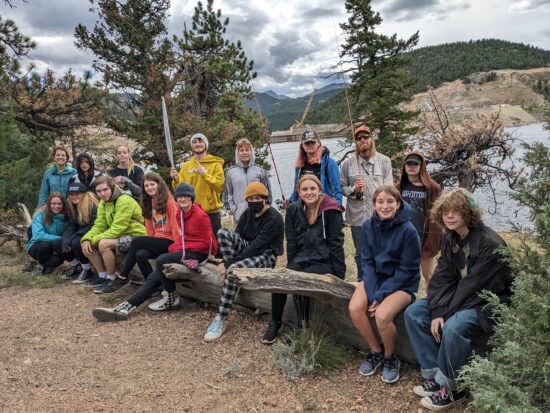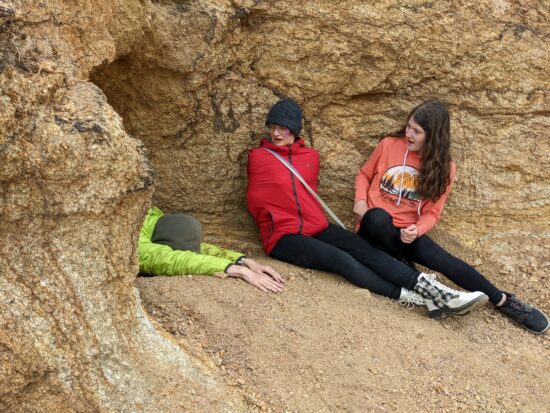Students explore perspectives from different stakeholders in the Gross Reservoir Expansion Project to understand broader water issues. Written by CI Field Instructor Amy Atkins. See more photos here!
In our current polarized cultural climate, it is often difficult to empathize with people who have different viewpoints from ours.

Our current climate has entrenched people into their belief system, and it’s even more difficult than at any time in my lifetime for people to hear or understand people who think differently than they do. Confirmation bias is amplified.
This is why my experience as an instructor with the CAP class at New Vista High School was so refreshing. I joined Chelsea and her students on a field trip to Gross Reservoir, which sits approximately 1800 feet “above” Boulder up Flagstaff Road. This field trip is part of a quarter-long investigation into the complexity of water issues in Colorado.
Chelsea centered the curriculum on the Gross Reservoir Expansion Project to not only teach students about water issues as an environmental concern but as a way of introducing students to understanding human psychology. Her curriculum brings in multiple perspectives through various lenses and stakeholders. Students go right to the source with first person accounts from these stakeholders to ensure reliability, credibility, validity, and authority of the data and information presented.

The class is really working to learn about all of the stakeholders and all of the myriad perspectives that go into the dam expansion issue. The curriculum also includes speaking with a representative from Boulder County, and hearing from one of the students in the class that lives in the neighborhood adjacent to the dam. These perspectives are all an integral part of the discussion.
Part of good teaching and learning is asking students to question everything – respectfully and with an open mind – to ensure that what they are learning is reliable, credible, valid, and as free from bias as possible (or at least understanding the bias). Questioning doesn’t equate to rebelling and dissent. Questioning is how we learn and how we find empirical data and facts. Questioning is how we topple longstanding beliefs that do not serve us anymore with new facts and new information. It’s how we learn to trust our own instincts and stand up for what is important and necessary. With their time in CAP, our students won’t just understand why water plays such an important role in our interconnected planet – they’ll understand more about its inhabitants.
Thank you to Denver Water & Colorado Parks and Wildlife for guest speaking on our field day!

